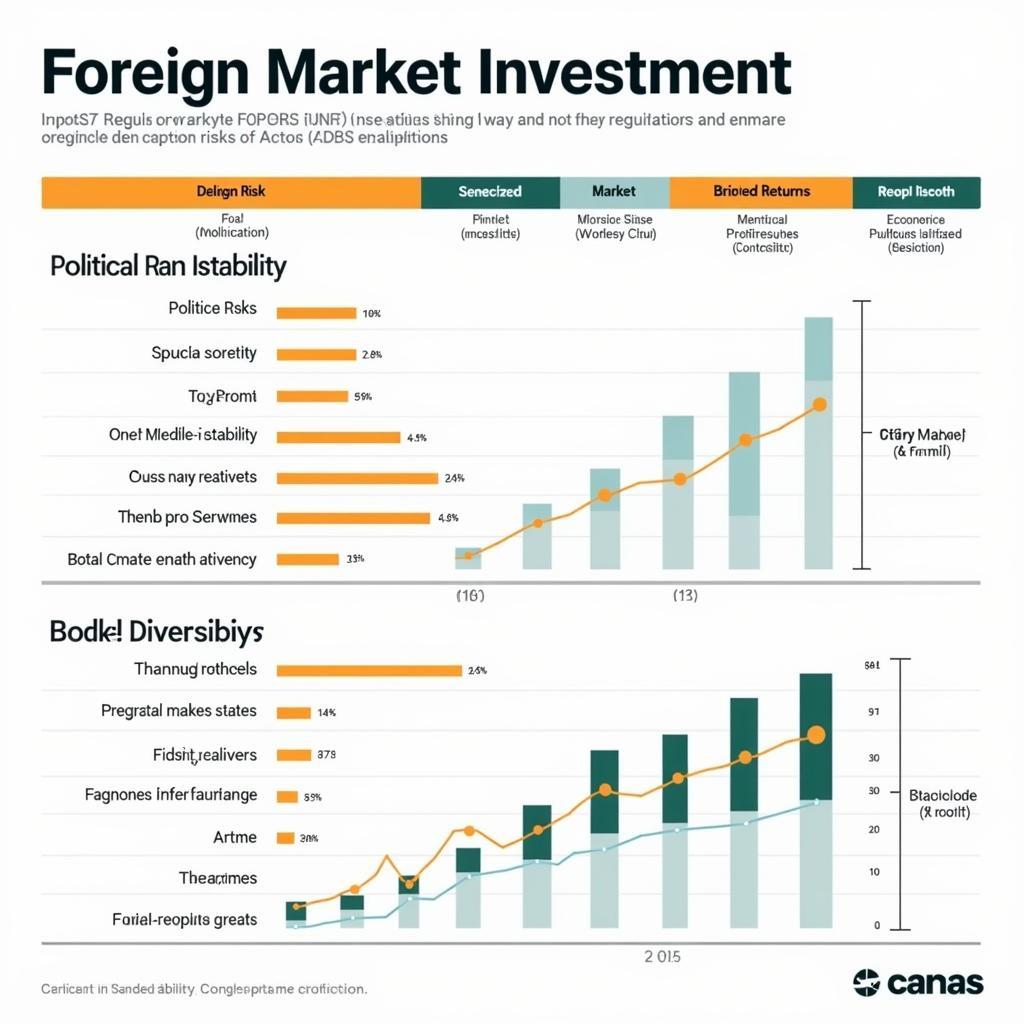The topic of risks in foreign market investment has become increasingly prevalent in IELTS Writing Task 2 examinations, particularly as global economic integration continues to deepen. Based on analysis of past IELTS tests, questions related to international investment and economic risks appear approximately every 3-4 months, making it a crucial topic for IELTS candidates to master.
Similar to the effects of economic globalization on developing countries, this topic requires a comprehensive understanding of international economics and its associated challenges.
Sample Question Analysis
Some people believe that the risks of investing in foreign markets outweigh the potential benefits. To what extent do you agree or disagree with this statement?
This question requires candidates to evaluate the balance between risks and rewards in foreign market investment. Understanding how currency devaluation affects international investments is crucial for developing a well-reasoned response.

Band 8 Sample Essay
While some argue that investing in foreign markets poses excessive risks, I firmly disagree with this viewpoint and believe that the advantages substantially outweigh the potential drawbacks when proper risk management strategies are employed.
The benefits of foreign market investment are numerous and significant. Firstly, international investment provides crucial opportunities for portfolio diversification, reducing overall investment risk by spreading capital across different economies and markets. Additionally, emerging markets often offer higher growth potential than developed economies, as demonstrated by the rapid expansion of economies in Southeast Asia and Latin America. This growth potential can translate into superior investment returns, which may not be available in domestic markets.
However, it is essential to acknowledge and address the inherent risks. Political instability, regulatory changes, and currency fluctuations can indeed pose significant challenges. For example, recent currency devaluations in several developing nations have impacted foreign investors’ returns. Nevertheless, these risks can be effectively managed through careful research, proper due diligence, and implementation of appropriate hedging strategies.
Furthermore, as discussed in analyses of how to promote sustainable development through international trade, foreign investment contributes to global economic development. It facilitates technology transfer, creates employment opportunities, and promotes economic integration, ultimately benefiting both investing and recipient nations.
In conclusion, while foreign market investment carries certain risks, these can be managed effectively, and the potential benefits far exceed the drawbacks when approached with proper strategy and understanding.
Band 6.5 Sample Essay
I disagree that the risks of foreign market investment are greater than the benefits, because there are many positive aspects that can help investors make good profits.
One main benefit is that foreign markets give more chances to make money. For example, when people invest in growing countries like Vietnam or Indonesia, they can get better returns than in their home country. Also, putting money in different countries helps to reduce risk because if one market goes down, others might go up.
However, there are some problems with foreign investment. The biggest risk is that the value of money can change between countries, which affects how much profit investors make. Another problem is that some countries have unstable governments or changing rules about business, which makes investment harder.
Despite these challenges, I think the good points are more important. When people invest in other countries, it helps both sides. The investor can make more money, and the country getting the investment can develop its economy and create more jobs, similar to how impact of international tourism on currency demand affects local economies.
In conclusion, although foreign market investment has some risks, the benefits are greater if investors are careful and make smart choices.
Key Vocabulary
- Portfolio diversification (n) /ˌpɔːtˈfəʊliəʊ daɪˌvɜːsɪfɪˈkeɪʃn/ – spreading investments across different assets
- Hedging strategies (n) /ˈhedʒɪŋ ˈstrætədʒiz/ – techniques to reduce investment risk
- Due diligence (n) /djuː ˈdɪlɪdʒəns/ – detailed research before making investment decisions
- Currency fluctuations (n) /ˈkʌrənsi ˌflʌktjuˈeɪʃnz/ – changes in exchange rates
- Regulatory framework (n) /ˌregjʊˈleɪtəri ˈfreɪmwɜːk/ – system of rules governing investments
- Market volatility (n) /ˈmɑːkɪt ˌvɒləˈtɪlɪti/ – rapid price changes in financial markets
Practice Suggestions
Consider practicing with these related topics:
- The role of foreign investment in developing economies
- Government regulations for international investors
- Impact of global economic events on foreign investments
Share your practice essays in the comments section for feedback and improvement suggestions.